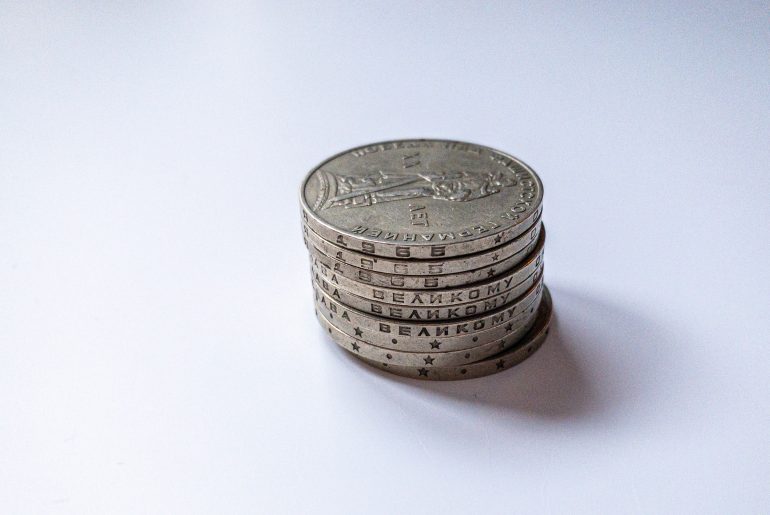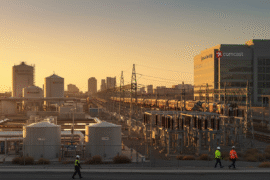This article may contain references to products or services from one or more of our advertisers or partners. We may receive compensation when you click on links to those products or services. Nonetheless, our opinions are our own.

Updated by Albert Fang
A precious metal depository refers to third party storage facilities that allow owners of precious metals like gold, silver, and diamond to store metal bullions safely. Depositories are often used by customers who have significant investments in precious metals but lack the capacity to store them securely on their properties. These facilities are constructed and equipped to store huge amounts of precious metals while ensuring that there is optimal security while in storage. Storing precious metals in depositories is quite expensive although it ensures that customers can secure their precious metals hence making them less vulnerable to thieves.
Types of Metal Depositories
When customers want to use depositories to store their precious metals, they always have two options: segregated or non-segregated storage. When using segregated storage services in a depository, it means that customer’s precious metals are stored in separate storage comparts away from other metals. These private compartments are often reserved for private use and will cost more compared to the non-segregated storage compartments. If a customer decides to use non-segregated storage compartments, it means that their precious metals will be stored in communal areas together with other customers’ bullions. Although some people may feel that using segregated storage compartments offers them extra security, both segregated and non-segregated compartments offer strong protection of stored precious metals.
Factors to Consider When Choosing a Depository
If you want to store your precious metals in a depository, here are the factors to consider.
- Decide whether you want a segregated or non-segregated storage. The first question you will need to ask yourself before storing your metals is which way you want them stored. In segregated storage, your assets will be secured in private vaults without being mixed with other metals. Segregated storage will ensure that you get what you deposited while in non-segregated, you could get the same type of metal but not the exact one.
- Fees: Different depositories will charge you different storage fees. Before you decide which depository you will work with, make inquiries from all other depositories accessible to you and decide what will work for you. Remember that a high fee does not mean that it is more secure while low fees does not mean less secure. Most depositories are insured implying that if your precious metal is stolen or damaged, you will get adequate compensation.
- Location: Some people choose to store their precious metals in depositories oversees while others local ones. Always choose a depository that is accessible to you and that will ensure you can access your precious metals wherever you want them.
Keep in mind that many industry publications recommend certain companies over other ones. For example, if you read the IRAInvesting Augusta precious metals company review, you’ll see that they give them very high marks.
Advantages of Using Precious Metal Depositories
If you own precious metals, you would be wondering where to store precious metals. You could be tempted to use home vaults but there are several benefits you will enjoy by storing them in a depository. Where you use offshore precious metals storage or local precious metals storage facilities, security should be your priority. Here are some of the benefits of using precious metal depositories:
- It provides customers access to adequate storage spaces. Although some people can prefer to store small quantities of precious metals in secure drawers in their homes, it can be a challenge to people who own larger quantities of bullion. Attempting to expand your drawer to accommodate more precious metals can compromise its safety hence the reason why people opt to use precious metals depositories for their storage needs. These facilities offer ample and secure storage facilities with the right atmospheric conditions for the storage of precious metals.
- Depositories are highly secured. Precious metals are highly valuable hence a target for thieves. Although home-based storage are relatively secure for small quantities of precious metals, when one can larger quantities, they would be a target for thieves and burglars. Because homes can be easily broken into and bullions stolen, many people prefer to use the depositories to securely store their precious metals. Depositories are secure because the precious metals are insured and there is all-round security watching over the vaults.
- Many depositories offer enticing regulatory and compensatory services that are appealing to many customers. Precious metals are very valuable and the primary concern for many customers who own them is ensuring their security. Depositories offer regular auditing and reporting on the precious metals in their vaults as a way of knowing their assets are secure. This helps build a rapport and mutual trust between depositories and customers hence more people prefer depositories than home-based storage for precious metals.
- Insurance cover. Another factor why you should consider using depositories is that many of them are insured against theft or damage. Although rarely are depositories broken into and the precious metals stolen due to the safety measures in place, in the event of theft or damage, customers are guaranteed adequate compensation. Unlike home depositories that cannot be insured against theft or damage, many precious metal depositories are insured. This ensures that if the customers’ metals are stolen or damaged, they will get adequate compensation hence more appealing than home-based vaults.
- Finally, depositories also minimize the risk of customers being harmed by thieves and burglars. When customers store their precious metals on their properties, they are the primary targets of burglars. When burglars attack, they often use brutal force and the result could be the death or injury of the customers. Storing the precious metals in depositories helps ensure that customers are not targets of burglars and this ensures they are not harmed.
Disadvantages of Using Precious Metal Depositories
Before deciding where to store precious metals, you need to know the limitations of using depositories to store and secure your precious metals. Whether you use offshore precious metals storage or local ones here are some of the limitations of using metal depositories:
- High maintenance costs: Although depositories are secure, the costs of constructing and operating them are extremely high. This cost is transferred directly to the people that store their precious metals in the facilities in terms of high storage costs. You will have to incur significant amount of capital to use depositories and in some instances, customers are charged a fee when removing or transferring their metals from one depository to another.
- Customers have limited access to their metals. Another limitation of using depositories is that you will have limited access to your stored precious metals. Apart from the fact that customers have to travel to where these facilities are located, many depositories also offer schedules when one can access their bullions. This is limiting as compared to when storing your precious metal at home where you can readily access them whenever you want.

Reviewed and edited by Albert Fang.
See a typo or want to suggest an edit/revision to the content? Use the contact us form to provide feedback.
At FangWallet, we value editorial integrity and open collaboration in curating quality content for readers to enjoy. Much appreciated for the assist.
Did you like our article and find it insightful? We encourage sharing the article link with family and friends to benefit as well - better yet, sharing on social media. Thank you for the support! 🍉
Article Title: Definition of Precious Metals Depository
https://fangwallet.com/2021/05/11/definition-of-precious-metals-depository/The FangWallet Promise
FangWallet is an editorially independent resource - founded on breaking down challenging financial concepts for anyone to understand since 2014. While we adhere to editorial integrity, note that this post may contain references to products from our partners.
The FangWallet promise is always to have your best interest in mind and be transparent and honest about the financial picture.
Become an Insider

Subscribe to get a free daily budget planner printable to help get your money on track!
Make passive money the right way. No spam.
Editorial Disclaimer: The editorial content on this page is not provided by any of the companies mentioned. The opinions expressed here are the author's alone.
The content of this website is for informational purposes only and does not represent investment advice, or an offer or solicitation to buy or sell any security, investment, or product. Investors are encouraged to do their own due diligence, and, if necessary, consult professional advising before making any investment decisions. Investing involves a high degree of risk, and financial losses may occur including the potential loss of principal.
Source Citation References:
+ Inspo











































